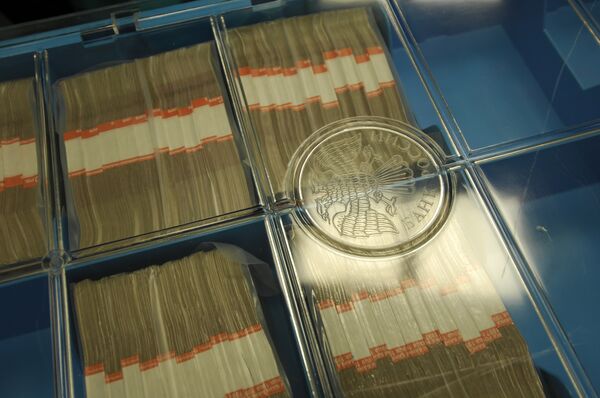MOSCOW, July 26 (RIA Novosti) – Russian household borrowers have to spend about a third of their income on consumer debt servicing, which is a source of concern, a Central Bank official said Friday.
Vladimir Chistyukhin, director of the Central Bank’s Financial Stability Department, told the Prime news agency that although the figure was “not catastrophic,” the average income of such borrowers was between 20,000 rubles and 40,000 rubles (about $600 to $1,200) a month, which leaves them with practically no financial reserve.
“Any change in the structure of their spending or income will create difficulties in debt servicing,” he said.
According to an Equifax credit report released in June, the proportion of Russian borrowers with credit histories in more than five financial institutions has grown significantly in the past six years, from 0.1 percent in 2007 to 3.52 percent in May.
The Central Bank is looking for ways to hold back the growth of unsecured consumer loans, the government newspaper Rossiiskaya Gazeta reported Thursday. One way of doing so would be to amend current legislation and introduce caps on the level of household debt, factoring in not only bank loans but also microfinancing.

